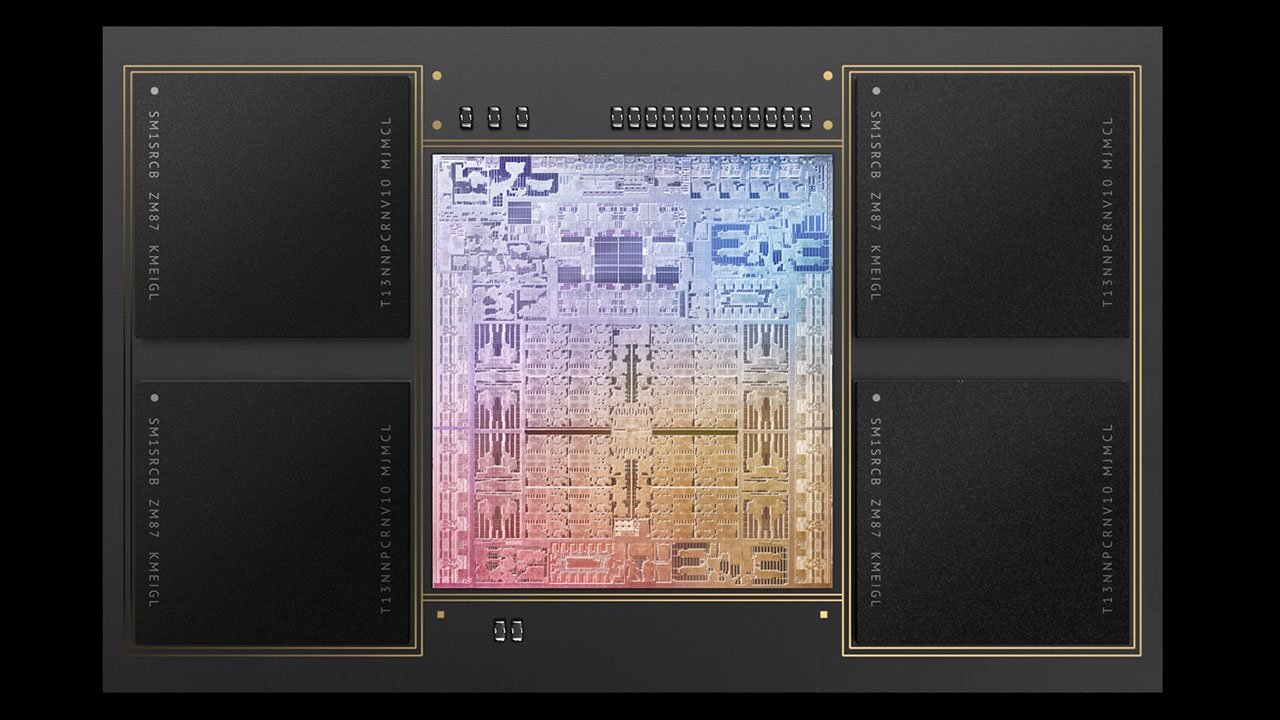A supposed benchmark reveals the raw performance of Apple's new M1 Max processor, with the new chip running 50% faster than 2020's entry-level M1 processor in multi-core score testing.
According to a Geekbench post on Monday, the 10-core M1 Max with 32GB of unified memory achieves a single-core score of 1749 and multi-core score of 11542, the latter representing a sizable increase in performance when compared to last year's Apple Silicon designs.
Averages for the most recent 13-inch MacBook Pro with an 8-core M1 chip show an aggregate single-core score of about 1750, while multi-core scores hover at around the 7600 mark.
The M1 Max compares favorably to all Mac systems, including those running Intel silicon. Only Mac Pro and iMac models equipped with Intel's top-end Xeon processors outperform Apple's most performant chip, according to entries in the benchmarking database.
It should be noted that the M1 Max benchmark has not been independently verified and some discrepancies exist in the presented data. Geekbench founder John Poole in a statement to MacRumors noted that the chip's base frequency is curiously low at a reported 24MHz, though the inconsistency could be the result of a software anomaly, as performance statistics line up with his expectations.
Apple introduced M1 Max alongside M1 Pro as the company's new "pro" level silicon designs. The M1 Pro features an 8- or 10-core CPU split between performance cores and at least two efficiency cores. Apple outfits up to 32GB of unified memory with its Pro silicon, RAM that is shared across CPUs and an up to 16-core GPU.
The M1 Max, available with the 16-inch MacBook Pro, comes with a 10-core CPU standard and boasts up to 64GB of memory shared with a 14-, 16-, 24- or 32-core GPU.
 AppleInsider Staff
AppleInsider Staff








 Chip Loder
Chip Loder
 Wesley Hilliard
Wesley Hilliard
 Amber Neely
Amber Neely
 Marko Zivkovic
Marko Zivkovic
 Malcolm Owen
Malcolm Owen
 Andrew O'Hara
Andrew O'Hara
 Christine McKee
Christine McKee










25 Comments
This data is incorrect.
I’m thinking they actually mean 2.5x more powerful (150%). Not 1.5x more powerful (50%).
Have to be honest, this benchmark seems low if it is true. With everything they launched today (impressive), I thought we would see single core at 2,000 and multi at 14,000+
We'll know the real answer by end of this week